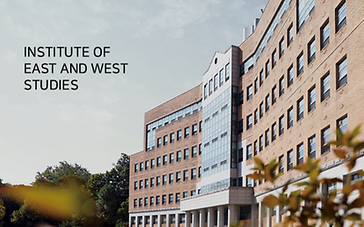- Institute of East and West Studies December 30, 2021
-
Broadening the Landscape of Convergence Research with Korean Studies Contents
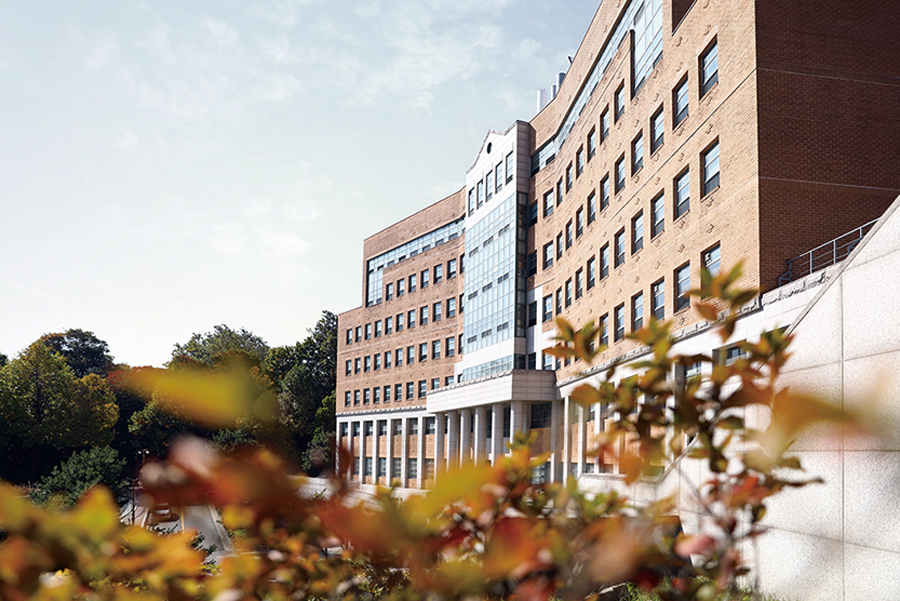
The Institute of East and West Studies (IEWS) of Yonsei University was established in March 1972 as an affiliated research institute of the university with the aim of contributing to the internationalization of Yonsei education through comprehensive academic research on the political, economic, social, and cultural aspects of major regions and countries of the world and to elevate the status of our academic community to the international community.
The early 1970s marked the end of the Cold War and the beginning of the alleviation of hostility between the East and the West. The dramatic changes in the international situation surrounding the Korean peninsula, such as Richard Nixon's visit to China following the Nixon Doctrine and the July 4 South-North Joint Statement, have heightened the sense of uncertainty and crisis and have led to an amplification of the sense of security crisis at home.
Recognizing the need for an academic response to the rapid changes in the domestic and international situation, Yonsei University established the IEWS as a research institute for the comparative study of East-West culture that solves world problems in our capacity through interdisciplinary research in the humanities and social sciences. At that time, most of the domestic university research institutes in South Korea were 1-in-1 research institutes, which did not even have an external system, with little success in achieving proper research results.
At such times, the IEWS, which was established as a pan-Yonsei academic research institute with the mission of carrying out a new research-oriented research system, has contributed to the development of academia for half a century by carrying out numerous projects in the political, economic, foreign and policy fields of the Republic of Korea. In the 1980s, the institute stimulated research in socialist countries, including the Eastern Bloc. In the 1990s, the institute strengthened research on regional studies by opening a cooperative course in regional studies at the graduate school level. In the 2000s, the institute focused on providing practical and realistic alternatives to government policy through forums and events centered on policy development.
The institute has produced research results in the fields of politics, economics, diplomacy, and social studies through the efforts of its countless researchers across its long history. From President Dae Seon Park, who founded the institute, there were 14 other directors, and the institute is currently headed by the 15th director, Professor Miseong Woo from the Department of English Language and Literature, along with Professor Byungwon Woo from the Department of Political Science and International Studies as the Associate Director. Under the institute's umbrella, the Leadership Center, 13 regional research centers, including the Yonsei-EU Jean Monnet Centre, and ten subject-specific research centers, such as maritime affairs, comparative culture, NPO, Yonsei RCE, peace and security, international development cooperation, energy and human resource development, and Air Power program, are operated. Publications include the SSCI-listed Global Economic Review and the Korea Research Foundation's listed journal East and West Studies.
The IEWS, one of the first research institutes to be established on university campuses in South Korea, will celebrate its 50th anniversary in March 2022. The institute, which has played a major role in the all-round development of the academic community for half a century, is now preparing for its second leap to play its role as a "K-culture hub" for researching and planning Korean studies content, as the Korean culture is emerging as a global content that attracts the attention of the world, along with the transformation of the history of civilization.
"K-culture" Project: the Beginning of a New 50 Years
Suppose cultural understanding is not premised on the process of discussing political, economic, diplomatic, social issues, etc., with other countries. In that case, we can constantly be exposed to power imbalances or make the mistake of understanding only a part of the phenomenon. South Korea has transformed from a country that used to embrace foreign cultures into a cultural content producer that attracts attention from all over the world in the shortest possible time. As Korea's leading research institute, the Institute of East and West Studies aims to strengthen cultural research based in South Korea and East Asia, thus creating a hub for convergence research that will establish a solid and stable foundation for future political, economic, diplomatic, and social studies.
In the first half of 2022, the IEWS is preparing for the "Korea-China-Japan TV Project" and an international academic symposium under the theme of "Netflix and the Korean Wave." The "Korea-China-Japan TV Project" is a benchmark project of "Arte TV," jointly promoted by Germany and France to heal the memories and wounds of World War II and promote cultural understanding between the two countries. The Korea-China-Japan TV Project, in conjunction with the Korea-Japan Cultural Exchange Council, aims to close the gap between the three countries of South Korea, China, and Japan in the second half of the 20th century and to create cultural contents that can be resonated and interesting by all generations while promoting understanding of each other's cultures.
On April 10 and 11, 2022, the international academic symposium on "Netflix and the Korean Wave" will be held for two days, co-hosted by the Seoul National University Asia Center (SNUAC), the "Asian Cinema Research Lab" at Simon Fraser University in Canada, and the "Transnational Culture and Digital Technology Lab" at Nanyang Technological University in Singapore, and sponsored by the Korea Foundation. The conference will analyze and discuss the roles and impact between the Korean wave contents and OTT media services, which became global media platforms recently, as well as both aspects of software and hardware, with the exciting topic of "Is Netflix riding the Korean Wave or vice versa?" The event will feature 10 domestic and 11 international teams and be an international symposium in the blended form of both online and offline events.
East and West Studies: a Journal Specializing in Regional Studies
Founded in 1988 to contribute to the internationalization of education and to enhance the status of South Korean academia in the international community through comprehensive academic research on politics, economy, society, and culture in major regions and countries of the world, the East and West Studies has grown over 34 years into a leading journal in the field of social sciences with a long history and tradition that is unparalleled by any journal in Korea. Starting as an annual monolithic journal, the publication has increased to twice a year since 1997 and four times a year since 2012, accumulating to 103 publications as of December 2021. East and West Studies was promoted to be a listed journal on the Korea Research Foundation in 2011 and has been selected for the Korea Research Foundation Academic Journalization Project for three consecutive years, proving its status as an international journal.
Regarding citations, East and West Studies ranks at the top of the field of regional studies in the Korean Citation Index (KCI), and the citation rate is steadily rising yearly. It is rated as an excellent journal due to the high quality and great utilization of published papers. By moving away from the journals focused on political science in the early days of its inception and expanding its focus to the broader fields of regional and interdisciplinary studies, it encompasses the scope of regional research that spans Asia, North America, Europe, the Middle East, South America, Africa, as well as the oceans, and cyberspace, with research analyses ranging from in-depth studies of domestic and foreign politics, society, culture, and economics of individual countries in each region to the study of phenomena and relationships in the international community, and macroscopic analysis at the microscopic level.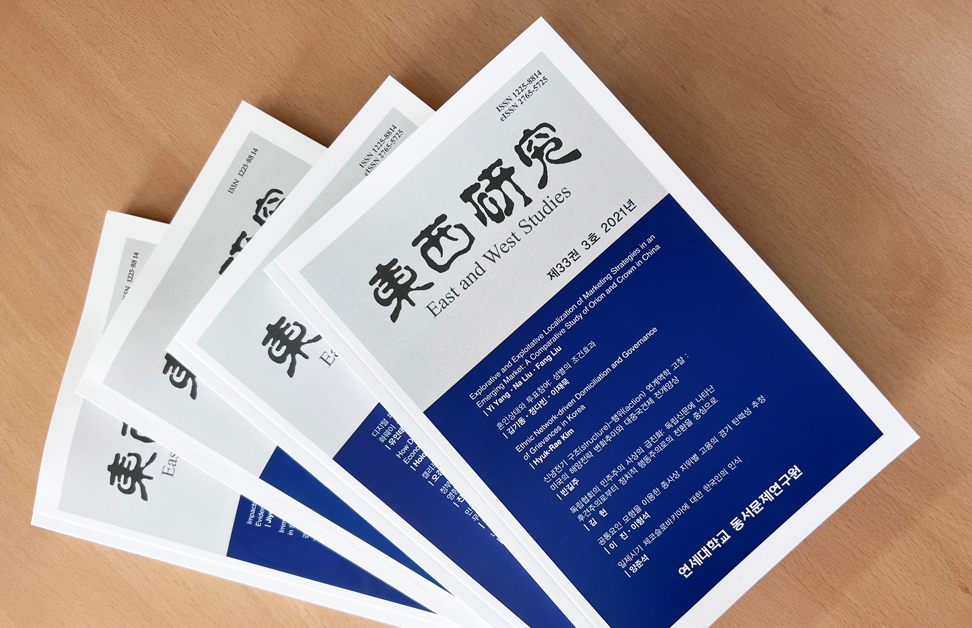
Korea Foundation e-school Project
The "Korea Foundation e-school Project" is a project that aims to enhance understanding of Korea and promote international friendship through exchange projects with foreign countries, and supports real-time online Korean studies and Korean language lectures and offline programs in connection with domestic and international universities to overcome the shortage of professionals of Korean studies education abroad compared to the explosion of demand for Korean studies. Since March 2021, the IEWS has received an annual grant of 240 million won annually from the Korea Foundation to provide courses on Korean studies and the Korean language to universities worldwide, including in Asia, Europe, the Americas, Africa, and the Middle East.
Leadership Center
The Leadership Center was established in October 2001 as the first professional training institution for leadership among universities in Korea to cultivate faithful volunteers committed to the development of the national society and to foster global talents with an international perspective that leads the era of globalization. It was reorganized in September 2013 into a subsidiary of the IEWS.
The center develops and provides leadership training programs to nurture Yonseians into global leaders with the basic grounding and expertise, social responsibility, spirit of service, international understanding, and communication skills they should have as leaders. It holds special leadership lectures by inviting prominent domestic and foreign figures from various fields such as politics, business, religion, and academia, as speakers. The "Leadership Workshop," a large-scale lecture centered on the activities of mid-level leaders and group meetings in each field of society, is held every semester so students can experience leaders' leadership in their respective fields. In addition, as a related major, the center has established a leadership curriculum to promote the revitalization of the leadership process.
Meanwhile, the Leadership Center is supporting the associated students' organizations, such as the "Yonsei Leaders Club," the "Yonsei Delegation for Model United Nations (YDMUN)," the "Yonsei-Keio-Ritkyo-Fudan Leadership Forum (YKRF)," and the "Yonsei Northeast Asian Network (YNEAN)," to continue to carry out unique and original projects.
Yonsei-EU Jean Monnet Centre
The "Yonsei-EU Jean Monnet Centre," also known as the "Jean Monnet Centre of Excellence (JMCE)," was launched in 2009 to raise awareness of the European Union at home and abroad, supported by the EU Commission's Erasmus+ programme. Its predecessor, the Yonsei-SERI EU Centre (2009-2016), has carried out activities such as EU-related outreach projects, strengthening networking, giving out scholarships, and supporting South Korea-EU exchanges. With the newly transformed Yonsei-EU Jean Monnet Centre taking over its role in 2016, it has been focusing on supporting EU-related research and teaching.
Its principal activities include the EU Academy, which provides an in-depth study of the history of European integration and the politics and economics of the EU, as well as the publication of Europe-related research and academic journals. Currently, the JMCE 2nd Term is being carried out under the auspices of the EU Commission. The centre is expanding its activities by supporting various EU-related lectures and holding academic events on and off campus.
Center for Sustainable Social Research/Yonsei RCE Center
The Center for Sustainable Social Research has been designated as the leading national institution of the "Regional Center of Expertise (RCE)," a network of regional experts for the implementation of UNESCO and the United Nations University's 10-year project of Sustainable Development Education, and signed a memorandum of understanding with the UN University in January 2007.
It is advisory to the "Tongyeong RCE" and plays a pivotal role in international exchange and the spread of education related to Sustainable Development Education (ESD) within Yonsei University. Since 2009 (2009-2013, 2016, 2018-2021), the center has been running a national training course for the training of international environmental professionals, providing literacy in the field of sustainable development and the environment, and training the competencies of interns sent to international organizations, and contributing to the production of internationally viable environmental professionals.
The center is also leading the research on the Sustainable Development Goals (SDGs) and ESD by carrying out projects such as the "ASEAN-Korea Partnership Academy," "Course for Local Administrative Experts on Sustainable Development," "Study for Improvement of SDGs and K-SDGs through Overseas Cases," etc.
Yonsei-Yale Research Exchange
The "Yonsei-Yale Research Exchange" is a project that the IEWS, the Institute for Global Engagement & Empowerment (IGEE), and the Graduate School of Public Health of Yonsei University and the Yale School of Public Health are working together on the theme of "global health" to maintain an ongoing partnership between the two universities, Yonsei and Yale.
"Global health" has long since deviated from the European and North American-centric research tendencies, and the need for collaborative research with Asian countries has long emerged. The Yonsei-Yale Research Exchange on this theme has been underway since the spring semester of 2021 and is studying concrete ways to realize the value of social justice and health equality under an innovative and systematized healthcare system through an ongoing institutional cooperation system.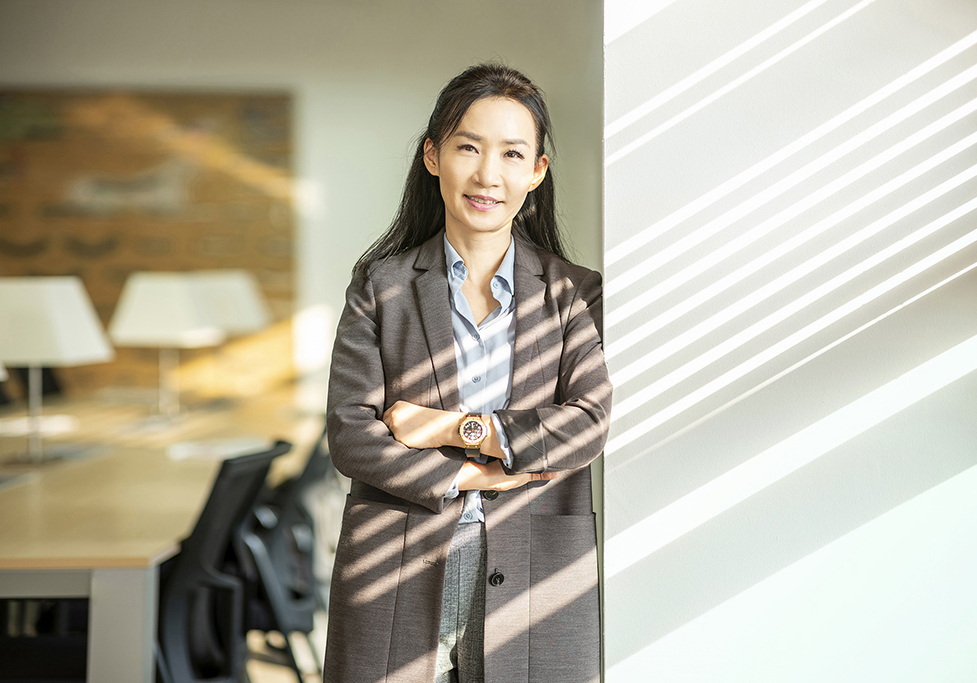
"Half a century has passed since the foundation of the Institute of East and West Studies,
which began while contemplating the future of Korea during the days of the Cold War.
We will create a research hub for Korean cultural convergence studies in the 21st century
by adding the element of "culture" on top of decades of accumulated research
conducted in the fields of politics, economics, international relations, and social studies."
Miseong Woo
Director, Institute of East and West Studies
Professor, Department of English Language and Literature
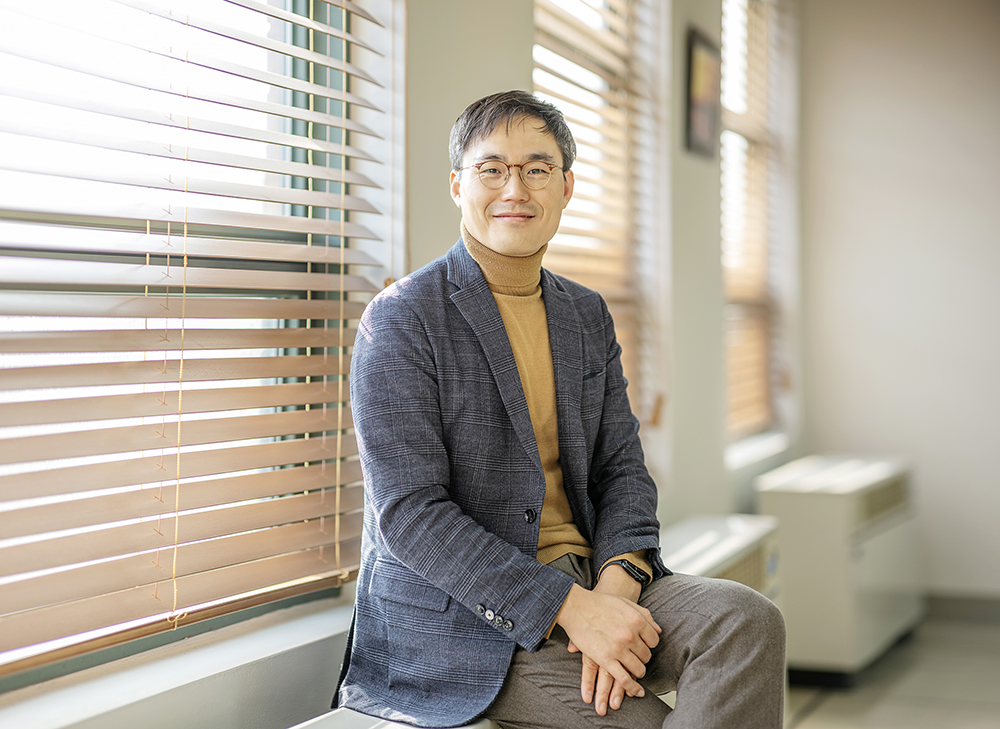
"The Leadership Center provides programs such as the Leadership Workshops involving more than
1,000 students annually, along with special lectures on leadership, linked major on leadership,
and leadership mileage systems. Under the Leadership Center, associated students' organizations,
such as the Yonsei Leaders Club, and the Yonsei Delegation for Model United Nations (YDMUN),
are also actively carrying out unique and original projects."
Byungwon Woo
Associate Director, Institute of East and West Studies
Professor, Department of Political Science and International Studies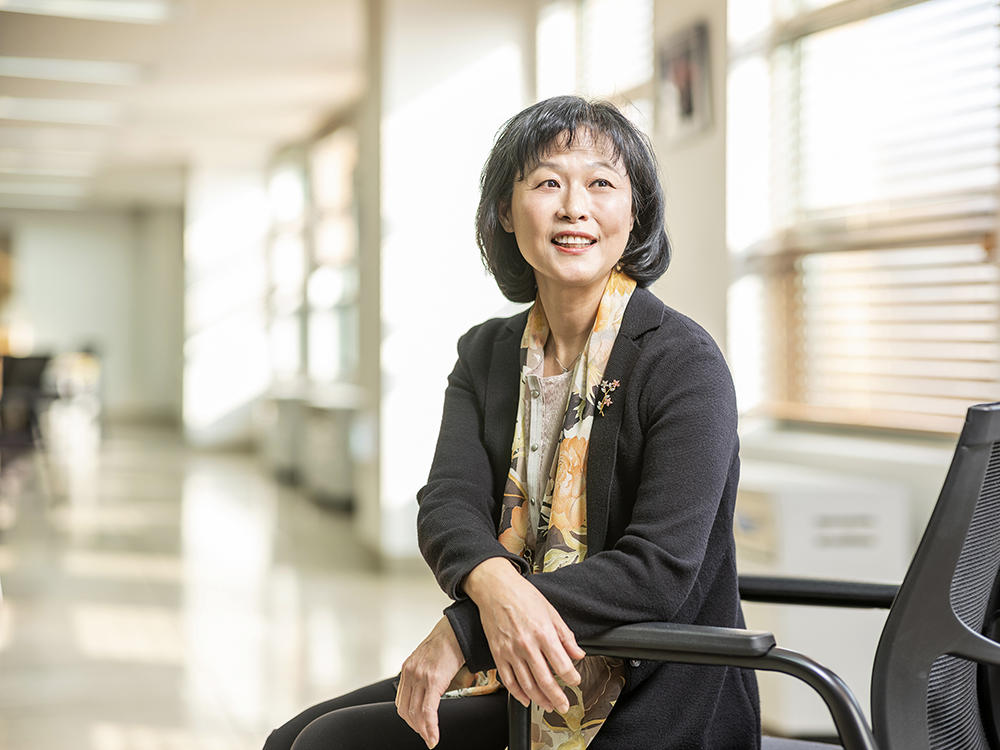
"In the face of another transition to the new normal and network society,
the IEWS is striving to become a "global hub of area studies"
by conducting cross-disciplinary research on social issues that are emerging worldwide."
Jeong Won Choi
Research Professor, Institute of East and West Studies
Ph.D. in Political Science
show mobile menu
mobile menu

